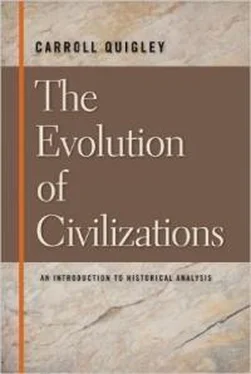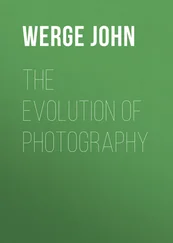In fact, it is possible today to attract favorable attention simply by pointing out the artificial nature of these older boundary lines. All this leads to the sixth contribution offered by this book. It tries to provide techniques for dealing with history or with social problems in general. For years I have told my students that I have been trying to train executives rather than clerks. The distinction between the two is parallel to the distinction previously made between understanding and knowledge. It is a mighty low executive who cannot hire several people with command of more knowledge than he has himself. And he can always buy reference works or electronic devices with better memories for facts than any subordinate. The chief quality of an executive is that he has understanding. He should be able to make decisions that make it possible to utilize the knowledge of other persons. Such executive capacity can be taught, but it cannot be taught by any educational program that emphasizes knowledge and only knowledge. Knowledge must be assumed as given, and if it is not sufficient the candidate must be eliminated. But the vital thing is understanding. This requires possession of techniques that, fortunately, can be taught.
The historian who is on an executive level rather than on a clerical level because he can make decisions and understands the materials with which he deals must have techniques of analysis, of morphological understanding, of developmental processes, and of evolutionary changes. I have tried to suggest, in an introductory fashion, the kind of techniques that might be used. Tensions and social conflicts can be analyzed in terms of the struggle between instruments and institutions, or of the morphological relationships between levels, or of the relationship, which I hardly mentioned, between fact and law. Clashes between areas and between groups must be analyzed in similar terms. Failure to use such techniques leads to childish judgments on historical events just as, among practicing politicians, it leads to childish decisions in world problems.
An example of how such techniques may be used in history might be helpful. For years I have been teaching students that historians come up against four kinds of problems. These are: (1) informational problems; (2) logical problems; (3) analytical problems; and (4) chronological problems. Techniques, capable of being taught, can be devised for dealing with each of these. The use of such techniques not only provides a method of attack on such problems; even more valuable is the fact that it makes us aware of the distinction between the problem and our approach to it; it becomes possible to judge the degree of inadequacy in our own performance or the degree to which our method of attack determines the kind of answer we get. Probably the achievement of such sophisticated self-awareness is the chief value to be derived from awareness of one's techniques, their adequacy, and their character.
The techniques I have discussed as instruments for dealing with the past have value outside the study of history, for they are equally useful in dealing with the present or the future. I sometimes demonstrate this to my students by imagining that one of them is called upon to lead a United States government commission of inquiry to Brazil, a country of which he knows little. I show how the techniques of analysis applied by me to past history can be used to approach this task by helping the leader to decide which experts he should take with him, how their assignments should be set on their arrival in Brazil, and how their results, at the end, should be coordinated to provide an adequate picture of a functioning Brazil beset by actual problems.
The value of these techniques, since they seek understanding rather than knowledge, is constantly high and has, if anything, increased in recent years. These years have seen, since Sputnik, a dramatic increase in the prestige of science and in the use of scientists in dealing with world problems. I should be the last person to regret this development, but, as a scientist, in the social sciences, I know that the problems of the world are not solved by the use of the natural sciences alone. Indeed, the direction and the coordination of scientific activities with respect to world problems require guidance and supervision by persons with a wider perspective than that provided by specialization in the natural sciences. Such perspective can best be found in the study of the past. With such perspective the techniques I have described in this volume as instruments for the study of the past can be used to guide natural scientists and other workers in dealing with the problems of the present and the future.
Selective Bibliography By William Marina
The following is not intended as a complete listing of all of the writings of Carroll Quigley. A definitive list should be completed after a careful examination of the more than thirty boxes of materials which he left to the library at Georgetown University, and which are still being organized. Rather, this listing contains some of his more readily available writings which might be of interest to the reader who has enjoyed The Evolution of Civilizations, as well as citations to several reviews of his two major works.
At the time of his death, Quigley was at work on a study which had occupied him for years and which might be called the sociology of weaponry; that is, the way in which the structure and development of civilizations are to a considerable extent a reflection of the weapons systems and military organization prevalent within a society. Drafts of this study, some two thousand pages in length, are in the papers left at Georgetown.
Dr. Marina is Professor in Business, Communications, and History at Florida Atlantic University in Boca Raton. He is coauthor of American Statesmen on Slavery and the Negro (1971), author of Egalitarianism and Empire (1975), and associate editor of News of the Nation: A Newspaper History of the United States (1976).
His own feelings about this work are perhaps best conveyed by a comment made in delivering the initial Oscar Iden Lecture at the School of Foreign Service at Georgetown University only a few weeks before his death:
Another thing which may serve to point out the instability of the power system of the state: the individual cannot be made the basic unit of society, as we have tried to do, or of the state, since the internalization of controls must be the preponderant influence in any stable society … .
Also related to the problem of internalized controls is the shift of weapons in our society. This is a profound problem. I have spent ten years working on it throughout all of history, and I hope eventually to produce a book if I can find a publisher. There will be endless analyses of Chinese history and Byzantine history and Russian history and everything else, and the book is about nine-tenths written, I'd say, in the last ten years. The shift of weapons in any civilization and, above all, in our civilization, from shock weapons to missile weapons, has a dominant influence on the ability to control individuals … .
In our society, individual behavior can no longer be controlled by any system of weaponry we have. In fact, we do not have enough people, even if we equip them with shock weapons, to control the behavior of that part of the population which does not have internalized controls. One reason for that, of course, is that the twenty percent who do not have internalized controls are concentrated in certain areas. I won't go into the subject of controls. It opens up the whole field of guerrilla resistance, terrorism, and everything else; these cannot be controlled by any system or organized structure of force that exists, at least on the basis of missile weaponry. And, as I said, it would take too many people on the basis of shock weaponry. We have now done what the Romans did when they started to commit suicide: we have shifted from an army of citizen soldiers to an army of mercenaries, and those mercenaries are being recruited in our society, as they were in Roman society, from the twenty percent of the population which does not have the internalized controls of the civilizatio n ("Public Authority and the State in the Western Tradition," pp. 34-35.)
Читать дальше










